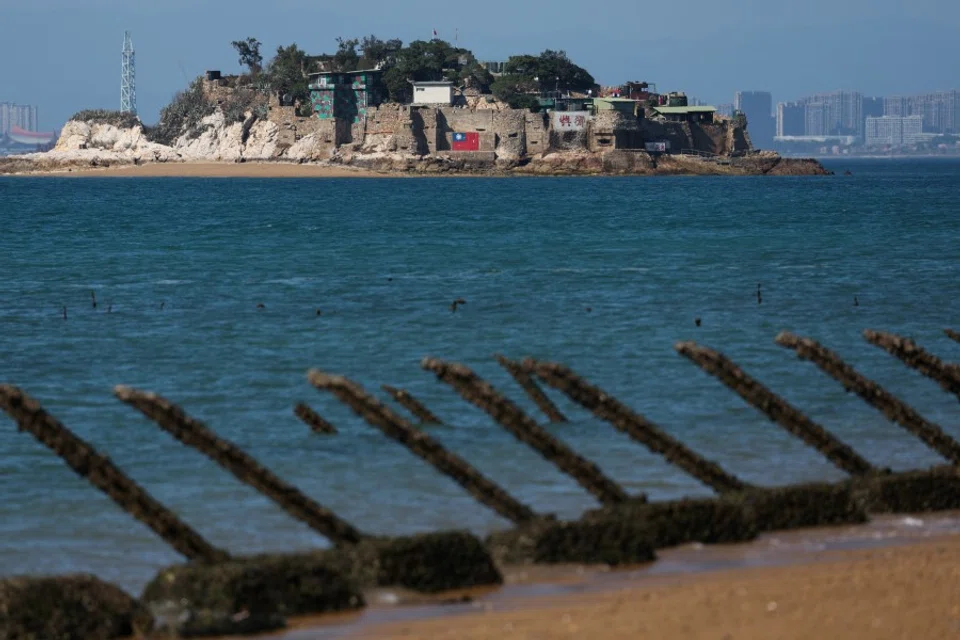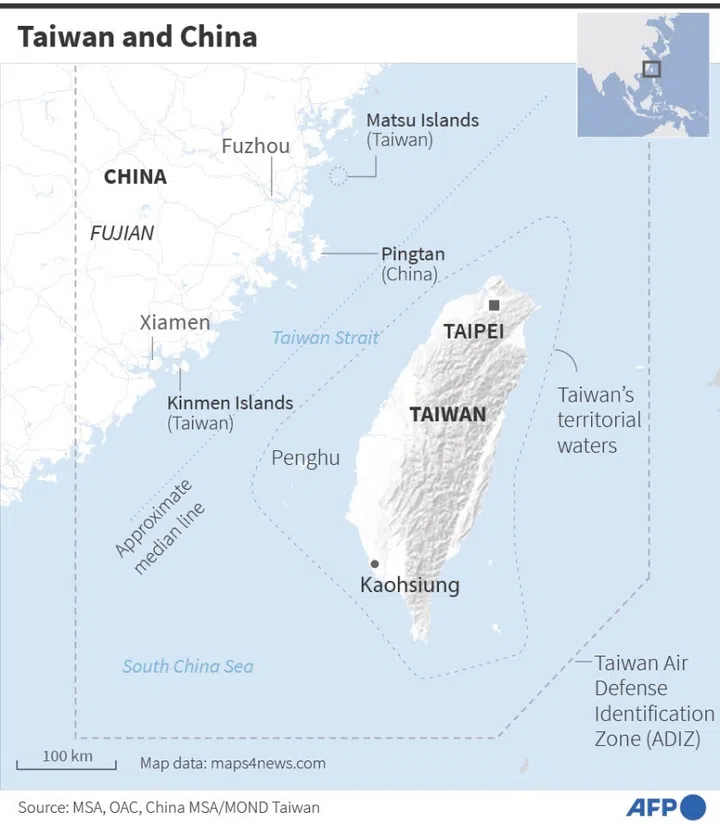Japanese academic: Taiwan needs to step up security on Kinmen and Matsu
Japanese academic Rira Momma analyses China's tactics in the Kinmen fishing boat incidents and how Taiwan may need to enhance its vigilance on the security of its remote islands.

On 13 January 2024, a presidential election was held in Taiwan. The Democratic Progressive Party (DPP) pair William Lai and Hsiao Bi-khim won and are now the president- and vice-president-elect.
This was an unacceptable result for China, which wanted to prevent William Lai, seen as a Taiwan independence activist, from being elected, and had run negative campaigns and engaged in various election interference efforts.
China continues to apply pressure on Taiwan
However, the voter turnout of 71.86% was the second lowest in the history of Taiwan's direct presidential election. The Lai/Hsiao pair also received a relatively low percentage of the votes at 40.05% compared to the 57.13% attained by Tsai Ing-wen/Lai in 2020. Furthermore, the DPP lost a significant number of seats in the Legislative Yuan election held at the same time as the presidential election, falling short of a majority.
In light of this situation, the Taiwan Affairs Office under the State Council of the People's Republic of China (PRC) continues to cast doubt on the DPP administration and the Taiwanese people by claiming that the DPP does not represent the mainstream public opinion on the island. The Republic of Nauru's decision to sever diplomatic relations with Taiwan and re-establish diplomatic relations with the PRC two days after the election was also an extension of the turmoil.
Chinese military aircraft resumed access to Taiwan's Air Defense Identification Zone, which had been suspended before the presidential election. Director-general of the National Security Bureau Tsai Ming-yen responded in the Legislative Yuan that mainland China conducts "joint combat readiness patrols" near Taiwan every seven to ten days on average.
New pressure in waters around Kinmen Island
In addition to the aforementioned pressure on Taiwan, mainland China is increasing pressure on the waters around the Kinmen Islands. This was triggered by the death of two Chinese fishermen on 14 February 2024.
Taiwan's Coast Guard Administration (CGA) vessel had attempted to inspect a Chinese fishing boat that had crossed into the "restricted zone" and "prohibited zone" that Taiwan had independently established in the waters around Kinmen for Chinese vessels. As the Chinese boat attempted to flee, it collided with the coast guard vessel and capsized, killing two of the four people on board.

In response to this incident, the Chinese side immediately criticised Taiwan while the Chinese media extensively reported the testimony of fishermen who said that the coast patrol vessel had hit them. The Chinese Coast Guard (CCG) also stepped up patrols around the islands.
China's method of using an event as an opportunity to transform the situation is the same as what happened after the "nationalisation" of the Senkaku Islands in 2012, in which the Japanese government put the islands under state control. It is believed that China recognised the Senkaku response as a successful example and followed suit.
In the Kinmen case, mainland China has denied the existence of the "restricted zones" and "prohibited zones" which it had previously respected and increased its patrols, much like how it rejected the median line in the Taiwan Strait immediately after former US House Speaker Nancy Pelosi visited Taiwan and normalised military flights across the line. Hence, while the Kinmen incident seems like a chance occurrence, it's really an "inevitable" development.
They want the residents of Kinmen to believe that they will be able to live a more secure and worry-free life if Kinmen belongs to China. A similar approach could be applied to the Matsu Islands...
In such a situation, Taiwan's CGA should take strong countermeasures but it is instead taking a very cautious approach. Although the CGA held press conferences for domestic audiences, it was reluctant to use aggressive counterarguments or press releases to sway domestic and international public opinion in Taiwan's favour. Due to William Lai's upcoming presidential inauguration on 20 May, the Tsai Ing-wen administration may have ordered a restrained response for fear of triggering an unexpected situation during the transition period.
Meanwhile, the Kuomintang (KMT) sent vice-chairman Andrew Hsia to Shanghai to meet with Song Tao, director of the Taiwan Affairs Office of the Chinese Communist Party (CCP). Although the KMT's purpose was to demonstrate its ability to negotiate with the CCP, it was used as a propaganda tactic by mainland China to reinforce its claims.
In addition, on 18 March, the CCG rescued two people from a Taiwanese fishing boat that was lost in the waters around Kinmen. One of the Taiwanese was an active-duty non-commissioned officer; he was detained by the Chinese authorities for further investigation when he failed to honestly identify himself.
China may apply similar measures on Matsu Islands
Amid these circumstances, China is making use of propaganda and public opinion warfare in addition to CCG patrols to achieve its aim. It is conducting "cognitive warfare" based on "mental/cognitive dominance" (制脑权) to direct the thinking of the Taiwanese people to align with that of mainland China.
They want the residents of Kinmen to believe that they will be able to live a more secure and worry-free life if Kinmen belongs to China. A similar approach could be applied to the Matsu Islands, which, like Kinmen, are inhabited and are geographically closer to China than to Taiwan.

What about the movements of the Chinese military? Japanese government officials have revealed that standoffs between CCG patrol vessels and Japan Coast Guard patrol vessels, as well as Maritime Self-Defense Force escort ships and Chinese Navy warships, occur on a daily basis around the Senkaku Islands.
Kinmen is situated right next to mainland China with Taiwan across the Taiwan Strait. Because of this geography, any unforeseen situation would be hard to reverse.
As with the Senkaku Islands, Taiwan may be reluctant to send naval vessels to the island. In fact, the Taiwanese military has expressed its reluctance to allow naval vessels to patrol the area. From mainland China's standpoint, deploying PLA warships on Kinmen would also not be an appropriate response. However, for the Matsu Islands, which do not face the Taiwan Strait, joint pressure through CCG vessels and PLA Navy ships may actually be an option.
Numerous gravel mining vessels have been operating in the waters near Matsu, and undersea optical cables have been cut twice. Although any connection with the Chinese government or military is unclear, both incidents are considered grey areas. As China is expected to increase its pressure on Taiwan, it seems necessary for Taiwan to be more vigilant on the security of its remote islands.






![[Photos] Fact versus fiction: The portrayal of WWII anti-Japanese martyrs in Taiwan](https://cassette.sphdigital.com.sg/image/thinkchina/3494f8bd481870f7c65b881fd21a3fd733f573f23232376e39c532a2c7593cbc)